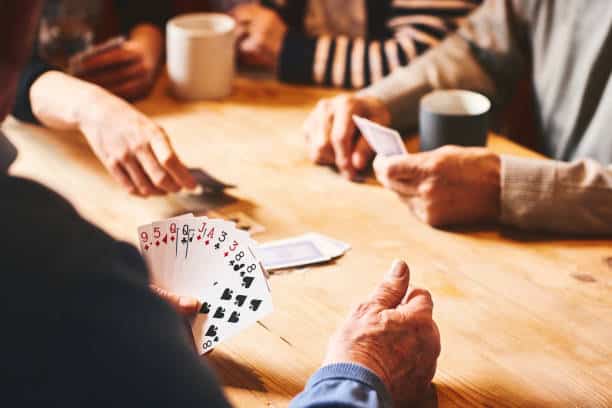As a lawyer who handles wrongful death and catastrophic injury cases, frequently the first time I meet people is when they’re in the middle of the worst time of their life. Something always strikes me in those moments: despite being in shock, despite the fact that they are grieving, there is something heroic about them.
It is heroic for them to have the courage to tell me about what happened to them or their loved one. It takes strength to pick up the pieces of their tragedy and shift their lives in a direction they never signed up for. And it takes courage to stand up against the party—often the Goliath to their David—that wronged them.
It takes a hero to come forward with the intention of righting a wrong. It takes a hero to hold Goliath accountable, and to do everything in their power to help prevent the same heartache and tragedy they’ve experienced from befalling other people.
Ultimately, the people I meet with come to me because they are heroes. They want to stand against injustice. They might not know how, and they might be overwhelmed, scared, or unsure, but they are ready to stand up. It’s awe-inspiring, and as their lawyer, I can think of nothing more honorable than standing up with them and helping them do that.
Holding the Right Systems Accountable
When I sit down with new clients for the first time, they are in shock. They have no idea how to move forward. It makes sense, of course: they’ve never been in this situation before. Nothing they’ve encountered in their life has given them the tools they need to know what to do or how to do it.
And that’s not the only challenge facing them. Most of the time, along with the emotional pain they feel, they are also grappling with serious financial worries. Plus, as if all that wasn’t enough, they are left asking themselves how the tragedy could have happened, and what they can do about it.
As their lawyer, I always tell them their first priority should be to take care of themselves and their families. I have the resources—a team of investigators and experts—who will figure out what happened and hold the right systems accountable. This is one of the most important parts of my job, in fact, and it’s one of the reasons I love doing what I do.
When the people sitting across from me realize that I’m going to stand with them, it helps relieve some of the stress they’ve been feeling so deeply. And, while they focus their thoughts and energy on taking care of themselves, I can start the process of bringing whoever is responsible to account for all the damages they caused.
Andrew Finkelstein, a managing partner of five law firms (Finkelstein & Partners, LLP; Jacoby & Meyers, LLP; Fine, Olin & Anderman, LLP; Finkelstein, Blankinship, Frei-Pearson & Garber, LLP; and Diller Law, LLP), a noted consumer activist, and accomplished litigator, represents victims in wrongful death and catastrophic personal injury cases. He teaches advanced trial practices at the Trial School and is a frequent lecturer, serving pro bono for a variety of organizations, including the 9/11 Victim Compensation Fund. Helping People Reach Emotional Tranquility
Over the years, I’ve learned that physical pain can be managed. It’s the emotional pain that is so much harder to handle. I describe this pain to jurors as “what’s between the ears and behind the eyes,” because that’s where true suffering takes place. Dealing with that emotional suffering is usually the part people struggle with the most, and it’s critical that jurors and the people I represent recognize that.
When seriously injured people realize that they have someone like me in their corner, someone with knowledge and experience who is dedicated and committed to helping them, it helps them achieve a level of emotional tranquility that previously felt out of reach. In my opinion, this is not only valuable but also vital. Truthfully, I couldn’t be prouder that my job affords me the opportunity to help ease people’s suffering.
Of course, I recognize that helping my clients find emotional tranquility doesn’t stop there. The other piece of the puzzle, particularly in personal injury cases, is helping people realize that, when they come to me, I will represent their whole person. I don’t represent an arm or a neck that got injured. That may seem like a slight nuance, but really, it’s everything.
Taking a holistic approach gives people permission to not just focus on the physical pain, but the emotional trauma they’ve experienced and are continuing to undergo, as well. I take great pride in being able to do that, and I feel privileged when people trust me to represent them in their entirety.
Protecting People’s Rights
After a catastrophic event, people experience deep grief and anger. When they come to meet with me, often, they haven’t really dug past those emotions and thought about what their true motivation for suing is.
Here, too, I view it as a privilege that I can help guide people in discovering their motivation for coming to see me. This is especially true if, as so often happens, people feel guilty about coming to see a lawyer. I usually say something like, “I bet what you really want out of this is to make sure it doesn’t happen to someone else’s loved one or family member, right?”
When I say that, I can see the light bulb go off. They feel a sense of relief when I ask them that, because it helps them pin down what they really want. They know I understand them—that I recognize it’s not just about getting money, it’s about finding some kind of meaning in their tragedy and making the world a better place.
Unfortunately, there is a lot of tort reform propaganda that’s driven by big corporations and insurance companies to make people feel like it’s wrong to try and hold them accountable. They’ve poured a lot of money into convincing people it’s bad to stand up for their rights. But, by exploring my clients’ motivations with them, I can help ease their burden by showing them that what they’re doing—standing up against injustice and pursuing their Constitutional right to recovery—isn’t wrong. It never will be.
Standing Up to the Bullies
The right to a civil jury is guaranteed in the 7th Amendment of the United States Constitution. Do you know why insurance companies and big corporations don’t want people to pursue their rights? Because a civil suit is the only place they can be held accountable.
The 7th Amendment isn’t the only thing that guarantees people’s rights, either. In America, we also have the right to protect ourselves and our property. If somebody enters our home with deadly force, we have the right to defend ourselves with deadly force. Similarly, when somebody’s actions damages them down to their soul, the person whose soul has been invaded has the same right to protect themselves. They have the right to protect themselves by pursuing justice.
That is the final reason that I am passionate about what I do. It’s not the wronged person’s job to figure out how to fight these big corporations and insurance companies. That’s what I’m there for.
As long as they are willing to stand up against those who have invaded the sanctity of their soul by wrongfully injuring them, I will stand side by side against the bullies with them. I will fight and support them in every way that I can. And I will always help them remember that they are doing it for a greater cause than just money, and there is never anything shameful, or dirty, or wrong with that.
For more advice on how to move forward after catastrophic injury or wrongful death, you can find “I Hope We Never Meet ” on Amazon.
Andrew Finkelstein is a managing partner of five law firms (Finkelstein & Partners, LLP; Jacoby & Meyers, LLP; Fine, Olin & Anderman, LLP; Finkelstein, Blankinship, Frei-Pearson & Garber, LLP; and Diller Law, LLP ), a noted consumer activist, and accomplished litigator, represents victims in wrongful death and catastrophic personal injury cases. He teaches advanced trial practices at the Trial School and is a frequent lecturer, serving pro bono for a variety of organizations, including the 9/11 Victim Compensation Fund.
Sarah Lunham is an interviewer, writer, and editor who advocates for the equal opportunities and rights of the injured at Total Trial Solutions. A biographer, Sarah tells the unique story of each client, helping them share their experiences and seek reparations for the injuries they’ve endured. She was awarded the 2009 Outstanding Graduate at Western Carolina University, where she earned her BS in Communication and minor in English.
Related Posts




